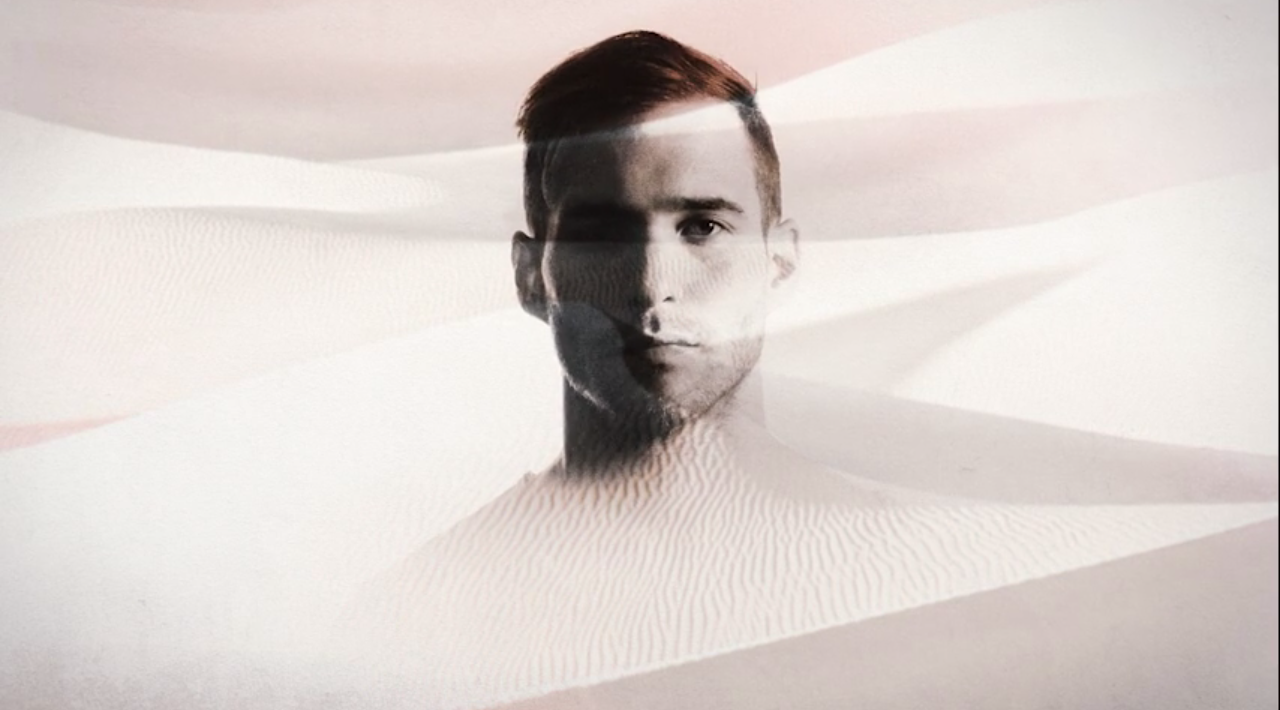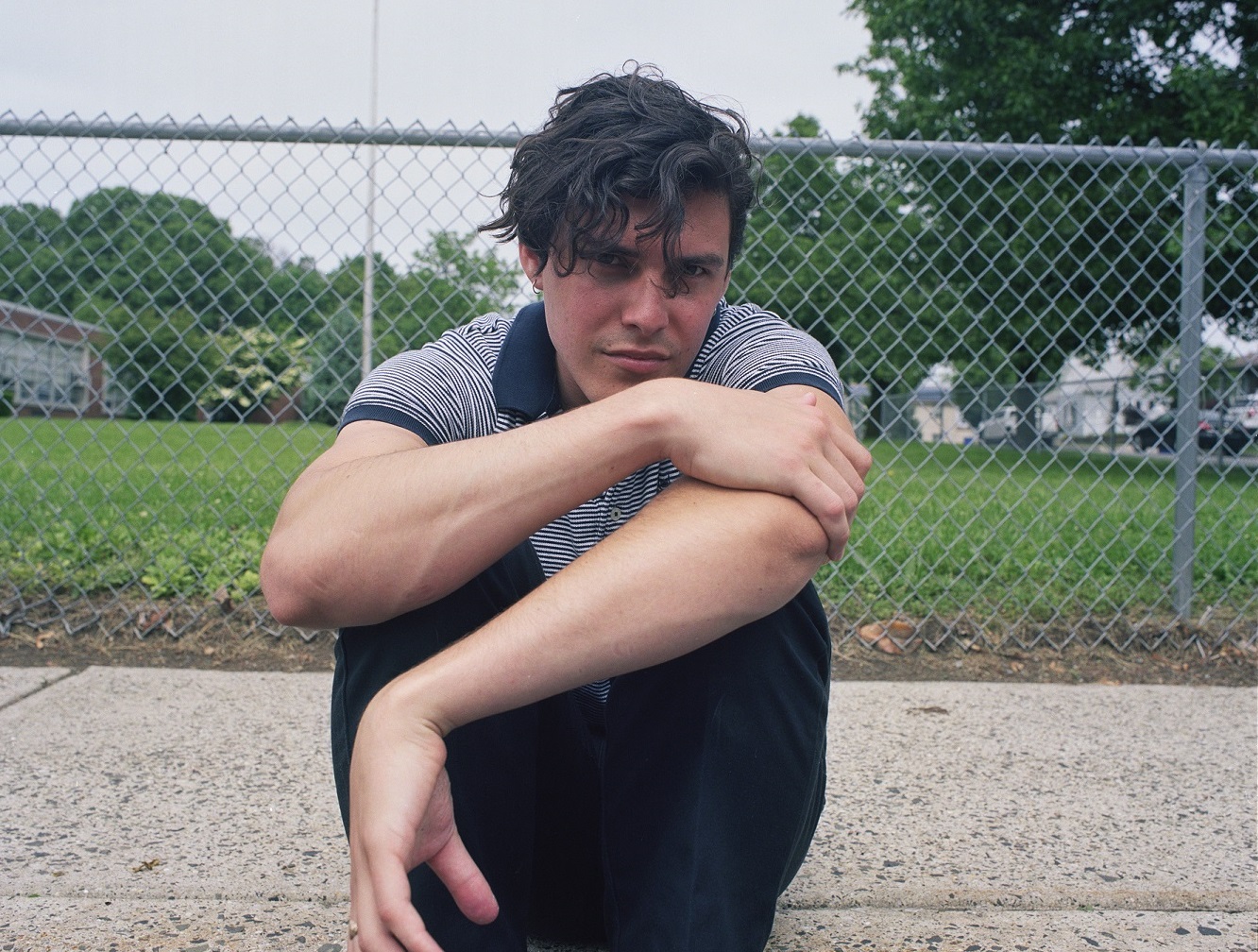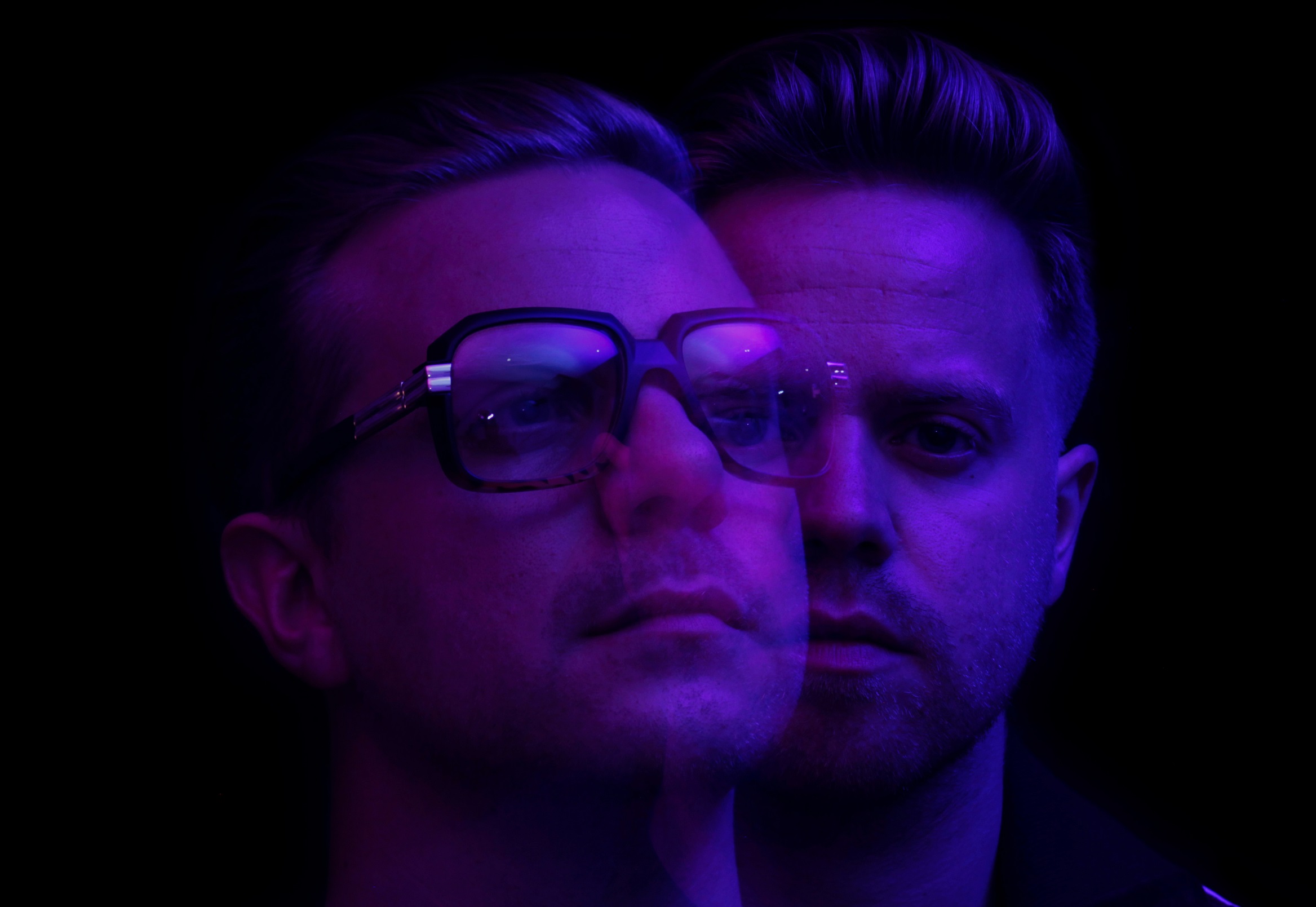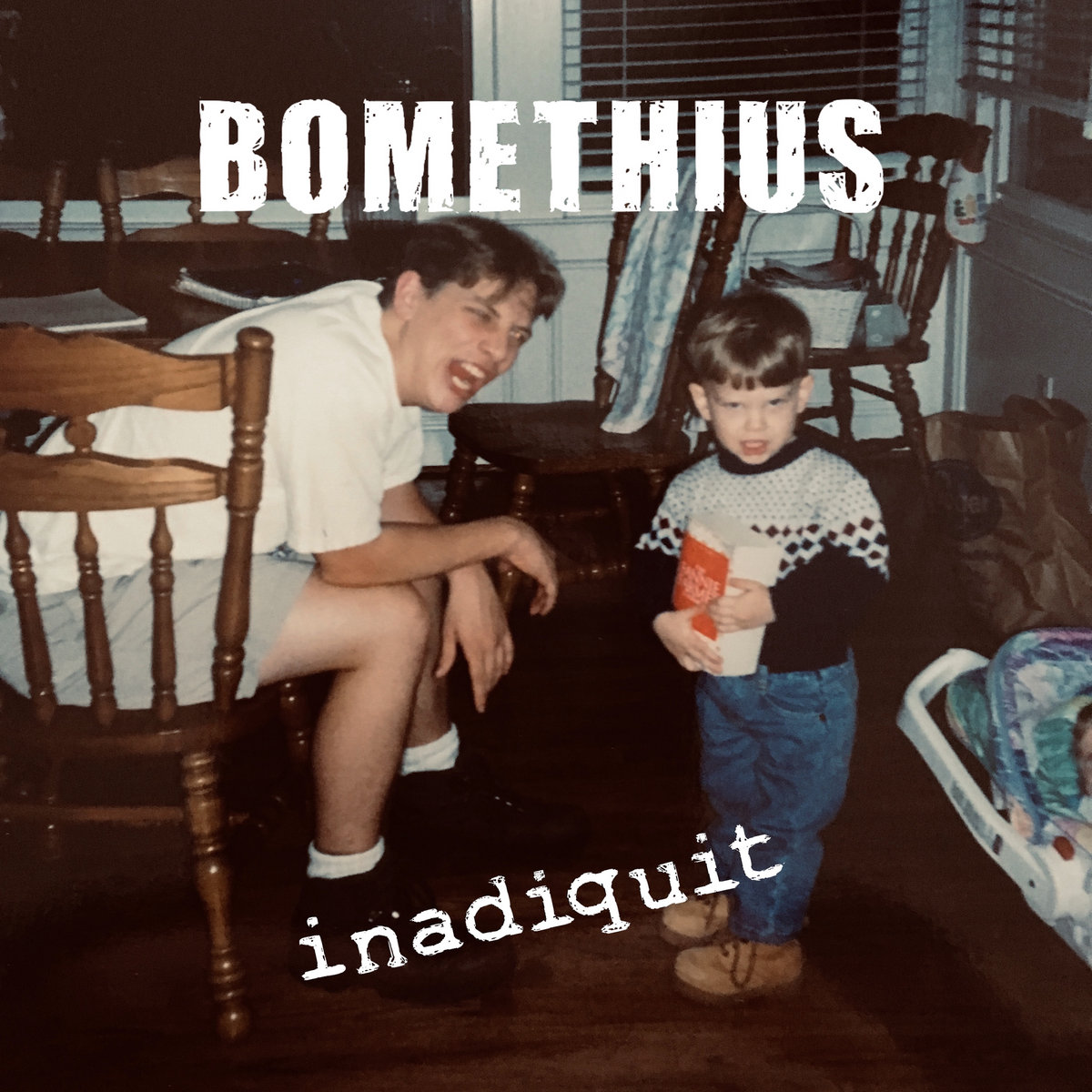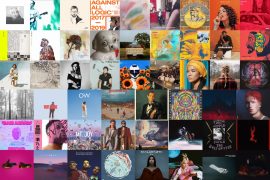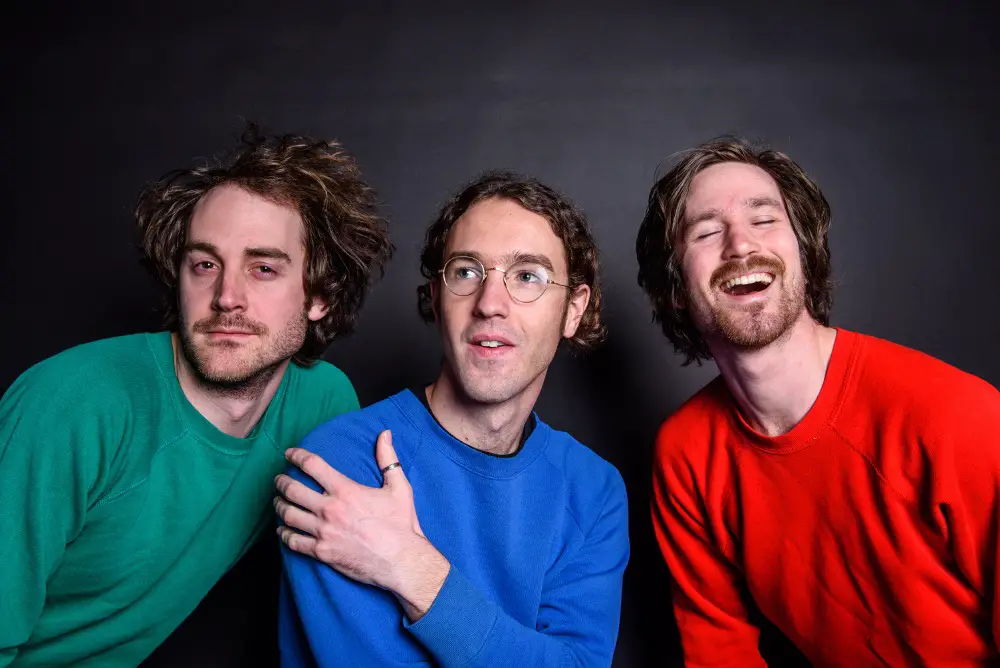Singer/songwriter Alycia Lang takes us track-by-track through her soul-stirring, emotionally charged debut album ‘Speak the Word to Hear the Sound,’ an achingly intimate, deeply vulnerable indie folk record that captures life’s messiness, magic, pain, and beauty.
Stream: “Bad Luck Bad Habit” – Alycia Lang
It’s the record where I learned to let art be what it wants to be and to trust and defend the process of a thing becoming itself, no matter how long or varied the path may be.
Singer/songwriter Alycia Lang’s debut album starts in the midst of a fever dream.
“I stayed awake ‘til the morning waiting for you, but I don’t mind,” the singer/songwriter confesses, her aching voice hot on the mic, soaring sweetly over a fervor of white-hot electric guitars and pounding drums. “I make the same mistakes as anybody who ignores the warning signs.” The air is thick with vivid imagery and raw emotion as Lang spills her heavy soul, collapsing into song rather than into herself. Songwriting has always been a diary-like procedure for the Durham by-way-of Northern California artist, and her first full-length LP – a release that’s well over four years in the making – sees her at her most vulnerable, honest, and unfiltered.
Life has had more than its fair share of (highs and) lows lately, and Lang packs all the full spectrum of experience and emotion into Speak the Word to Hear the Sound, an achingly intimate record that hits hard and leaves a lasting impression on both the ears and the heart.
She holds nothing back throughout eight soul-stirring songs that capture the messiness, the magic, the pain, and the beauty of being present in your body and feeling the full weight of the world as it comes crashing down.
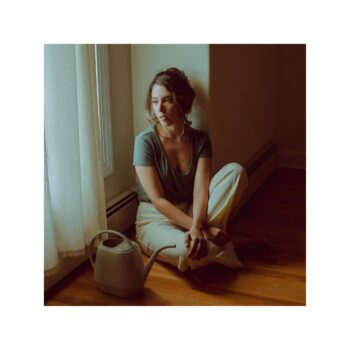
It’s all or nothing I got nothing to prove
Maybe I should have done it different
In the end it’s my game to lose
But talk is cheap
I’ll probably never find you
Saying what you mean
Nobody asked me
If they did I’d say I’m tied up
Sleeping afraid of dreaming
They’re gonna figure me out
They’re gonna write a song about it now
Was it bad luck or just a bad habit
Didn’t like what I saw though
I thought I just had to have it
Was it bad luck or just a bad habit
Didn’t like who I was though
I thought I just had to have it
– “Bad Luck Bad Habit,” Alycia Lang
Released June 14, 2024 via Mtn Laurel Recording Co., Speak the Word to Hear the Sound is a breathtakingly beautiful record of reflection and inner reckoning. Arriving five full years after Alycia Lang’s debut EP MakeShift (which premiered right here on Atwood Magazine in May 2019), her debut album is a tender tempest of rock-inflected indie folk: Sonically and emotionally charged songs reveal the duality of our souls’ delicate, yet determined nature.
“Alycia Lang’s songwriting is profoundly personal, yet impressively universal: No matter what she’s singing about, listeners can likely find a way to shape her stories into their own lives,” Atwood Magazine wrote of Lang five long years ago, praising her EP as “the beautiful undoing of one identity, in order to make way for something new.”
Speak the Word to Hear the Sound is also an undoing, in a way – but in that undoing is an artist’s journey deeper into herself.
“I think I made as honest a record as I could,” Lang says of her LP. “It’s not trying to be anything other than what it is. For better or worse, that has always been the name of the game for me artistically. Art is inherently vulnerable, and I think the farther I lean into that, the more meaningful the work becomes. My songwriting is also very lyric driven, and this album is no exception.”
She continues, “I will always take songwriting as an opportunity to dive into the granularity of an experience, to look at things from all angles and see if I can come out the other side with a more holistic understanding of the subject at hand. It’s always my hope that doing that leg work of trying to understand will let me walk hand-in-hand with the listener to the other side of an experience with a broadened perspective.”
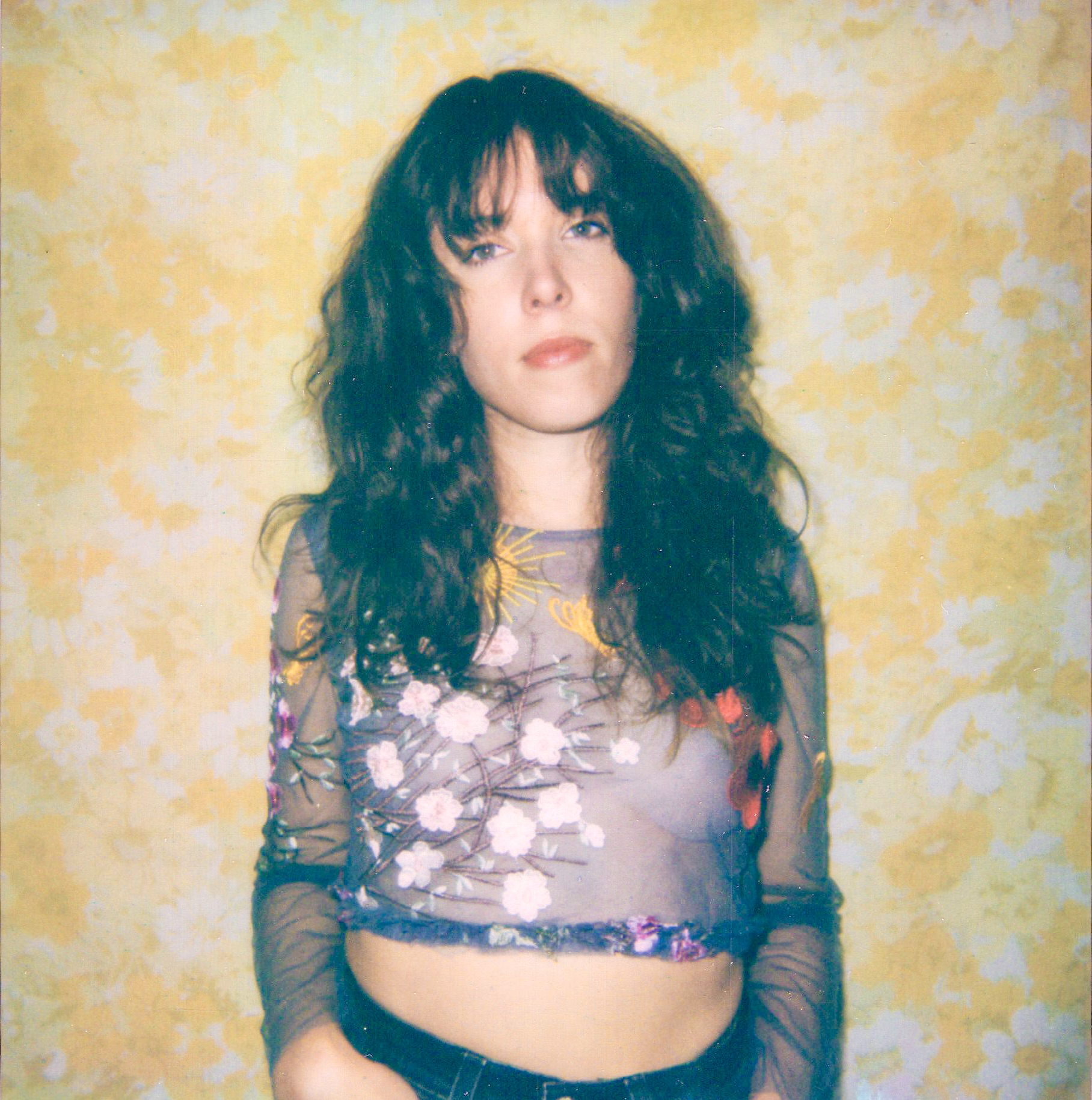
Years in the making, Speak the Word to Hear the Sound began to take shape whilst Lang was in the midst of massive life transitions – the kind of changes that came with multiple forms of loss and discovery.
“I began writing this record when I moved across the country from California to North Carolina,” she tells Atwood Magazine. “I’d made the decision to move somewhat impulsively, and while it was exciting and largely joyful, it also coincided with a period of grief, which left me living and writing in the complex, nuanced emotional space of duality. Here I was with a new, exciting start and also grieving the loss of a handful of things I didn’t feel ready to permanently let go of. I spent every day when I moved to NC moving through that grief, dissecting and putting it back together through songwriting. It got to the point where I would wake up with lines in my head or put entire sections of dreams verbatim directly into the verses of songs because to be honest, my waking and dreaming lives started to feel interchangeable. I felt like my subconscious was doing couple duty and there just weren’t enough hours in the day to process all the things that needed processing during that time.”
“During that time, the complexity inherent in every single experience became really apparent to me. So many of the songs on the record are me trying to make sense of an experience by looking at it from all angles. In some ways, songwriting is the only time my over-thinking ever serves me. Like many artists, I’ve always done my deepest contemplation in my writing because music affords me the space and permission to dive into the complexity of human experiences like grief, or love, or resentment, of growing up and slowing down.”
“I didn’t really know I was making a record at first. I’d just moved to North Carolina from my home state of California and my plan was to take a year to write as much as I could and just dedicate myself to my own project after years and years of playing in other bands. I got a couple months into that process before I found myself taking songs to Figure 8 in Brooklyn to demo. When I looked at the ones I’d collected for the first round, I realized the collection really encapsulated the chapter of life that was ending. It felt like an important record to make to get some of the closure I couldn’t find in my life otherwise.”
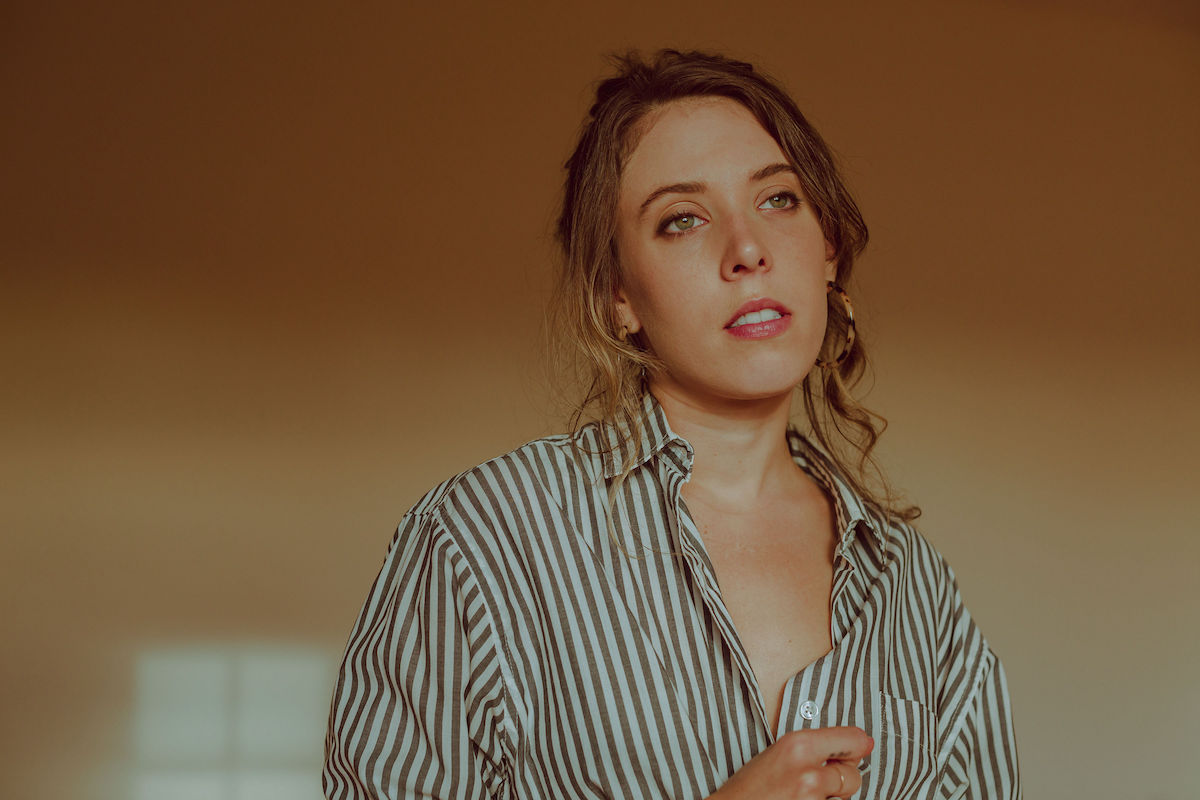
Lang’s vision for the album also changed considerably between its conception and its release.
“My original plan was to record this entire album at Figure 8 with my friends in New York. I wanted to make the record and put it out within the span of a year… but quarantine and loss of work made that pretty much impossible. Luckily my home quarantine pod at the time included my friend Jenn (who was also obviously homebound) and close proximity to Montrose Studios, (in Richmond at the time, now in LA) which was also owned by friends of mine. I had a lot of time to share these songs and experiences with those around me, so Jenn and I eventually just decided to use our newfound free time to take the project to Montrose and make it happen. It was a really intimate, magical session where the combination of being back in the studio and fully immersed in a tight knit community came together to make something so special. We were all able to give the songs our full attention in a way that I just don’t think would have been possible in very many other circumstances with the distractions of everyday life at play. I’ve never felt more connected to a recording experience. We came away with something that was so deeply special to me that I couldn’t imagine rushing the process of putting it in the world if it meant denying it the care and support it deserved.”
“Because this collection of songs was recorded during such an odd time, of course recording plans changed again as things started to open up more, so there are several co-producers on this record in the end, which is an approach I’ve taken in the past as well. Some of the songs came about in a surprising long-distance fashion, like ‘Half Hearted,’ which my close friend Lauren O’Connell produced from across the country straight from a demo I recorded sitting on the floor of my bedroom. Some of the early demos I made at Figure 8 also made it on there and Adrian Olsen had a hand in producing a couple songs too.”
“Speak the Word to Hear the Sound is a record about change and honesty. About growing up and letting go, about being inextricably linked to places and to each other. But more than anything, it’s the record where I learned to let art be what it wants to be and to trust and defend the process of a thing becoming itself, no matter how long or varied the path may be.”
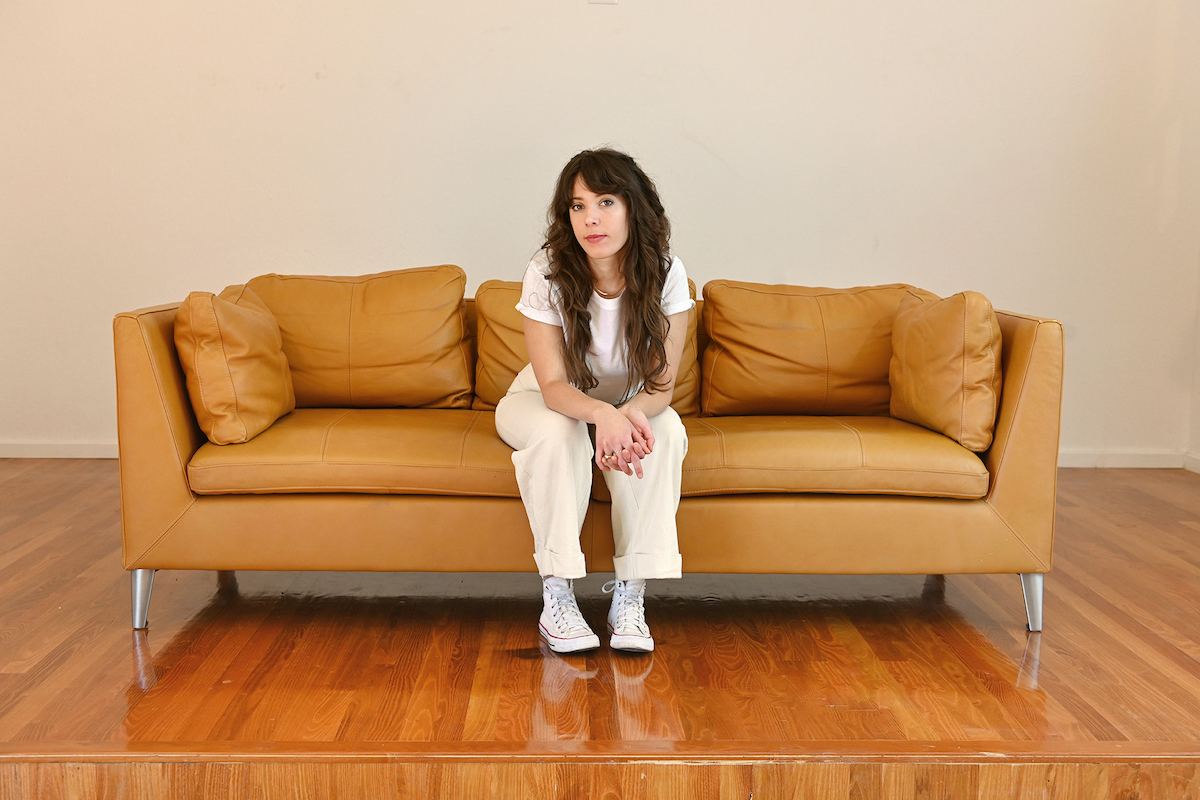
Lang describes her album as variegated, sentimental, and honest.
The title Speak the Word to Hear the Sound is pulled from a line on the album’s second track, “Peripheral.”
“As soon as I wrote it, I knew that in a sense it also encapsulated what I was doing with these songs. I always have an inclination to refine and refine art until it’s technically perfect or to write with a clear goal or audience in mind, but sometimes it’s enough to say something just to hear and feel yourself say it out loud, to experience it by speaking it into existence,” Lang explains.
“So often that’s what I’m doing in songwriting… creating a space to sing the thing I can’t say, to take all the time I need to build the context for a sentiment that feels too big or complex to speak out loud. It’s a rather nuanced thing I guess, but in addition to having words received, there’s also value in hearing yourself say them. We say “I love you” to pass on a message, sure, but also to feel what it’s like to say that out loud.”

On this record, I’m feeling what it’s like to say things out loud without an expectation about where it’ll lead.
Highlights abound on the journey from album opener “My Kind” – a song of raw, unabating heat – to the sweetly soothing, aptly-titled 7.5-minute finale “Slow Fade.”
The album’s irresistible lead single “Bad Luck Bad Habit” – one of the best songs released in 2024 thus far – is as seductive and spirited as it is soul-baring, finding Lang diving into her past, revealing scars in the form of acts of self-sabotage and recklessness in romance. The gentle “Half-Hearted” aches with sweet harmonies and open wounds, and the dramatic “Canaries” aches with uncompromising passion.
“This might be a hot take, but ‘Slow Fade’ is my favorite song on the record,” she smiles. “It’s seven-and-a-half minutes of growth that requires patience and presence to get the full benefit of, but I find the payoff to be so worth it. It’s also the only song I’ve ever written that still makes me emotional years later.”
“I wrote the majority of this album during a really transitional period in my life. I’d suffered the sudden loss of a place that was very dear to me, that I’d grown up in and imagined future moments in my life taking place in, and in a moment that was all gone without warning. I began writing this song the day my family left that place for good. I think we don’t really consider how tied we are to a place until we’re permanently separated from it. When my family moved away from my home state and the small town I’d grown up in, I’d suddenly lost the option to go back there in the same way I’d come to take for granted. It’s maybe hard to explain, but as someone from such a small town, even though I had lived in a ton of other places in my adult life, I felt like I was operating without a limb for the first three years after that. I would dream every night about my whole life up until that point like I was watching it flash before my eyes in episodic installments. My dreams became life-like and my life became dream-like.”
“The version you hear on the record is largely made up of a demo that contained such magic that we couldn’t possibly have re-recorded it and keep the magic in tact, so we didn’t, even though there are technical flaws throughout. I recorded in Brooklyn, sitting on my friend Aaron’s bed with the window open to the street below… you’ll hear a car honk in time and in key during the bridge. Magical moments like that felt like a wink and a nod telling me that the thing I was making was it. The samples at the end are pulled from various videos I filmed over the years at that family home: the crunching of the gravel, the water fountain in the front yard, wind under the oak tree, the bees in the garden… They’re all the signature sounds of a meaningful place, which makes the song feel like a time capsule to me.”
“Structurally, I am also proud how I used the form of the song to embody the sentiment in the lyrics. My vision for the end of the song was that it would be like the slowest fade imaginable, but also a long build that culminates in the feeling of being ultimately denied gentle closure. Like a sonic experience of the idea that no fade is slow enough to prepare you for some transitions. That’s the best way I know how to evoke the feeling the song is about – to re-create the concept through sound. It builds and builds and then the record is over. That’s it. Time to get off the ride.”
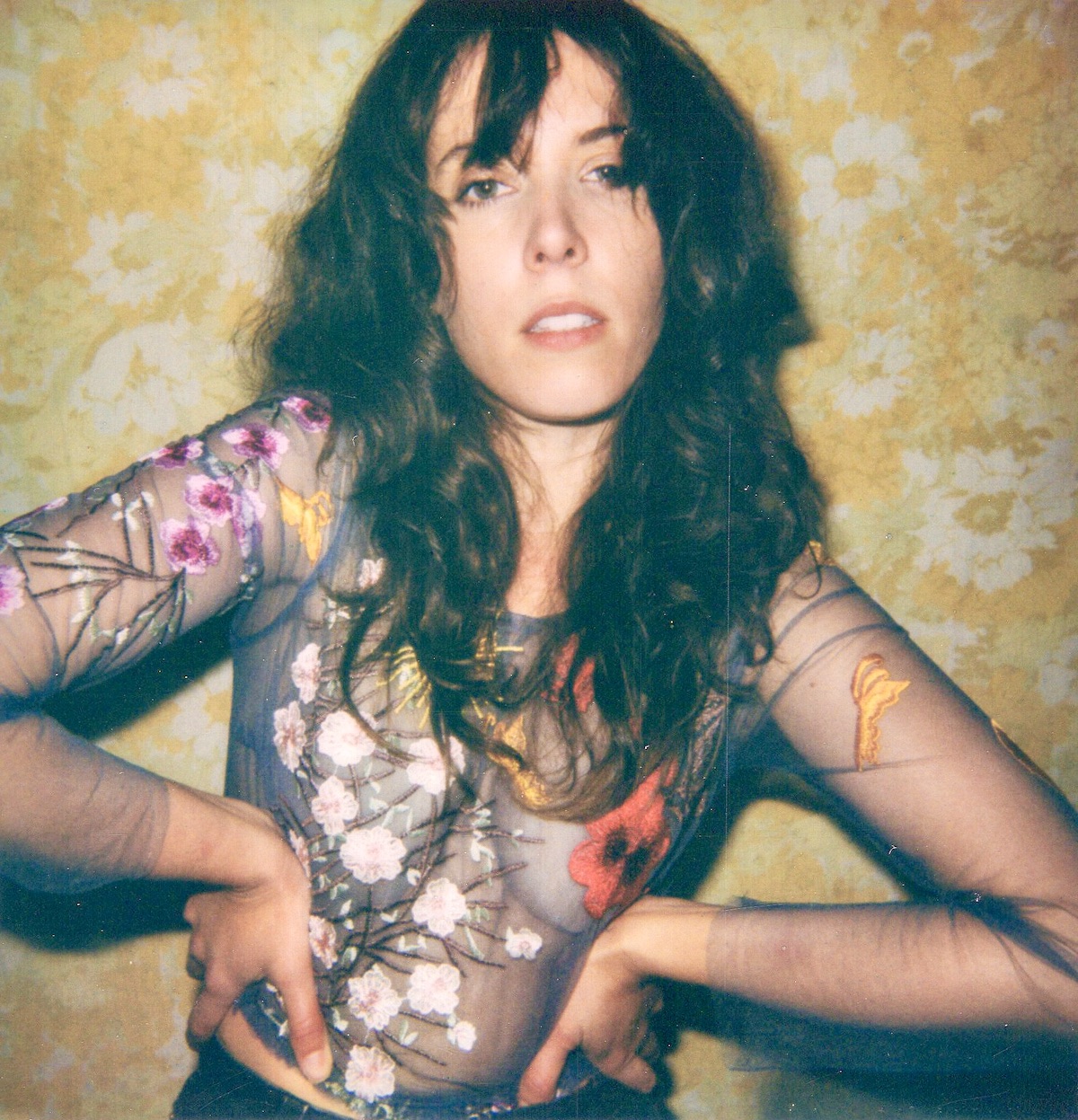
Ultimately, Speak the Word to Hear the Sound is as much a journey into Alycia Lang’s humanity as it is into our own.
Her vulnerability translates into a singular experience that has to be felt in order to be fully understood and appreciated.
“I think all you can ever really hope for when releasing art is that it reaches the people it will resonate with,” Lang shares. “I hope some of the vulnerability of this record opens up a space for people to experience that in themselves, but I also hope people take whatever they need from it, even if that’s just one or two bangin’ refrains and some background music. Of course, I always hope listeners take the time to notice the lyrics, but once the record is out, it doesn’t really belong to me anymore. I try to maintain that it’s none of my business what relationship people have to it once it’s left my hands. That’s between the listeners and the songs.”
“But I will say, in some ways, that’s also part of what I’ve taken away from creating this record – to notice and respect that the art has a life of its own, even as I am making it. On this record, I tried to make every step about enabling the songs to come into the world on their own terms. I’m not perfect at keeping my fears and influences out of it, but I think (I hope) I’m getting better.”
Experience the full record via our below stream, and peek inside Alycia Lang’s Speak the Word to Hear the Sound with Atwood Magazine as she goes track-by-track through the music and lyrics of her debut album!
Speak the Word to Hear the Sound is out now via Mtn Laurel Recording Co.
— —
:: stream/purchase Speak the Word… here ::
:: connect with Alycia Lang here ::
Stream: ‘Speak the Word to Hear the Sound’ – Alycia Lang
:: Inside Speak the Word to Hear the Sound ::
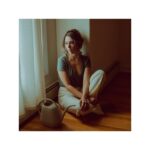
— —
My Kind
This song was the first written on this new album, before I even knew I was writing one. In some ways, its writing marked a shift in my life and perspective that put me on a path leading away from the familiar things that were comfortable but not serving me, and towards all the other songs on the record. I’ve joked that it’s a song about acknowledging suppressed rage, but at its heart, it’s probably more about admitting a desire to make mistakes and messes without consequences instead of being the one quietly and anxiously holding things together all the time in the name of composure.
Peripheral
This song was sort of the flip side of the aforementioned set of feelings in My Kind. I wrote it when I felt like I was drifting apart from someone (or needed to start moving away from them) because I realized I was playing out the same lessons over and over again the hard way. It’s ultimately about denial and the moment you realize you can’t stay in it forever. Where My Kind indulges the base satisfaction of blame and anger, Peripheral goes back and assumes some of the responsibility for the dysfunction of a relationship in dissolution.
Half Hearted
I was stopped at a crosswalk for an elderly man who was crossing the street unsteadily and I found myself wondering who he’d loved, helped, and hurt in his life before his body aged to the point where he was feebly crossing the street alone. It was one of those moments where I felt all the resentment towards anyone who’d ever hurt me melt away and I realized how inescapable and paradoxical and lonely the human condition can be. There are so many moments when we’re asked to hold two opposites to be true at the same time, and we rarely acknowledge how heavy a task that can be.
Canaries
I guess Canaries is a little dystopian. I was thinking about sensory overload and being so distracted by the constant stream of noise that we’re rendered frozen in a sense of powerlessness. It’s pretty tragic to think of a whole world full of humans going down because they’re too busy bickering over the details and buying into the systems that oppress them to notice they’re running out of air. In this song, though it’s packaged up in a pretty fun delivery, I was questioning what might happen if we just pulled the plug on all that and went to work on making things better.
In Circles
I wrote this song thinking if I could capture some tenderness towards my own mind —swap out punishment for understanding just one time, and record it— I’d have something to help call me back in the moments when I can’t think or shame myself into calm. The song is a token of tenderness that I hope gets passed to whoever needs it.
Shadow of a Shape
Inevitably, there are big moments in every person’s life where they’ll be faced head on with the experience of a massive shift, and those moments can be really alienating and abstract and dreamlike.. The words “shadow of a shape” sort of encompass this feeling of grief that comes with being close to something, but only able to engage with its abstract form rather than the version you’ve come to rely on.
Bad Luck Bad Habit
In 2020, I had a lot of time to think about various choices I’d made in my life and relationships. Bad Luck Bad Habit was the product of that contemplation. I suppose in some ways, it’s a song about self sabotage, and in the second verse, a bit about a kind of devil-may-care recklessness that comes from choosing what’s easy instead of what’s right.
Slow Fade
When you’re listening to a song and it fades out, you get the courtesy of knowing that the end is near. It gives you emotional space to prepare for it to end. Slow Fade is about wanting some version of that in life’s transitions, and not really getting it.
— —
:: stream/purchase Speak the Word… here ::
:: connect with Alycia Lang here ::
— — — —

Connect to Alycia Lang on
Facebook, TikTok, Instagram
Discover new music on Atwood Magazine
© Al Bingham
:: Stream Alycia Lang ::

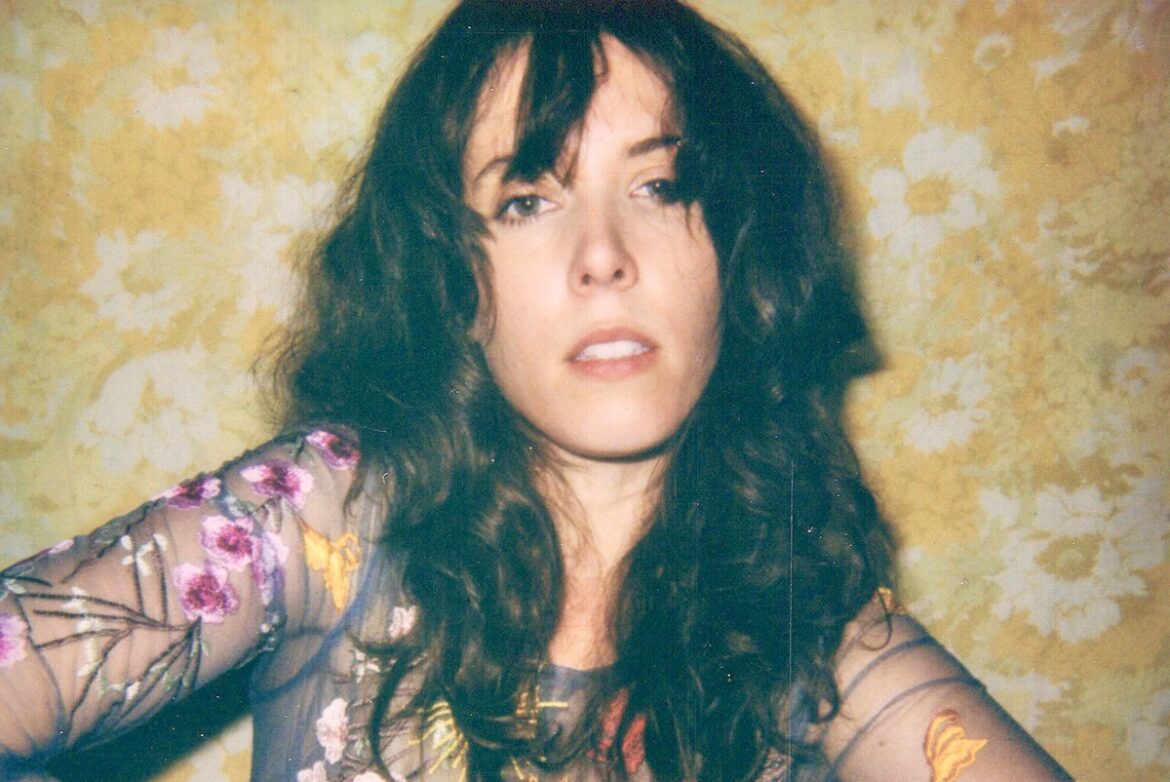
 © Al Bingham
© Al Bingham